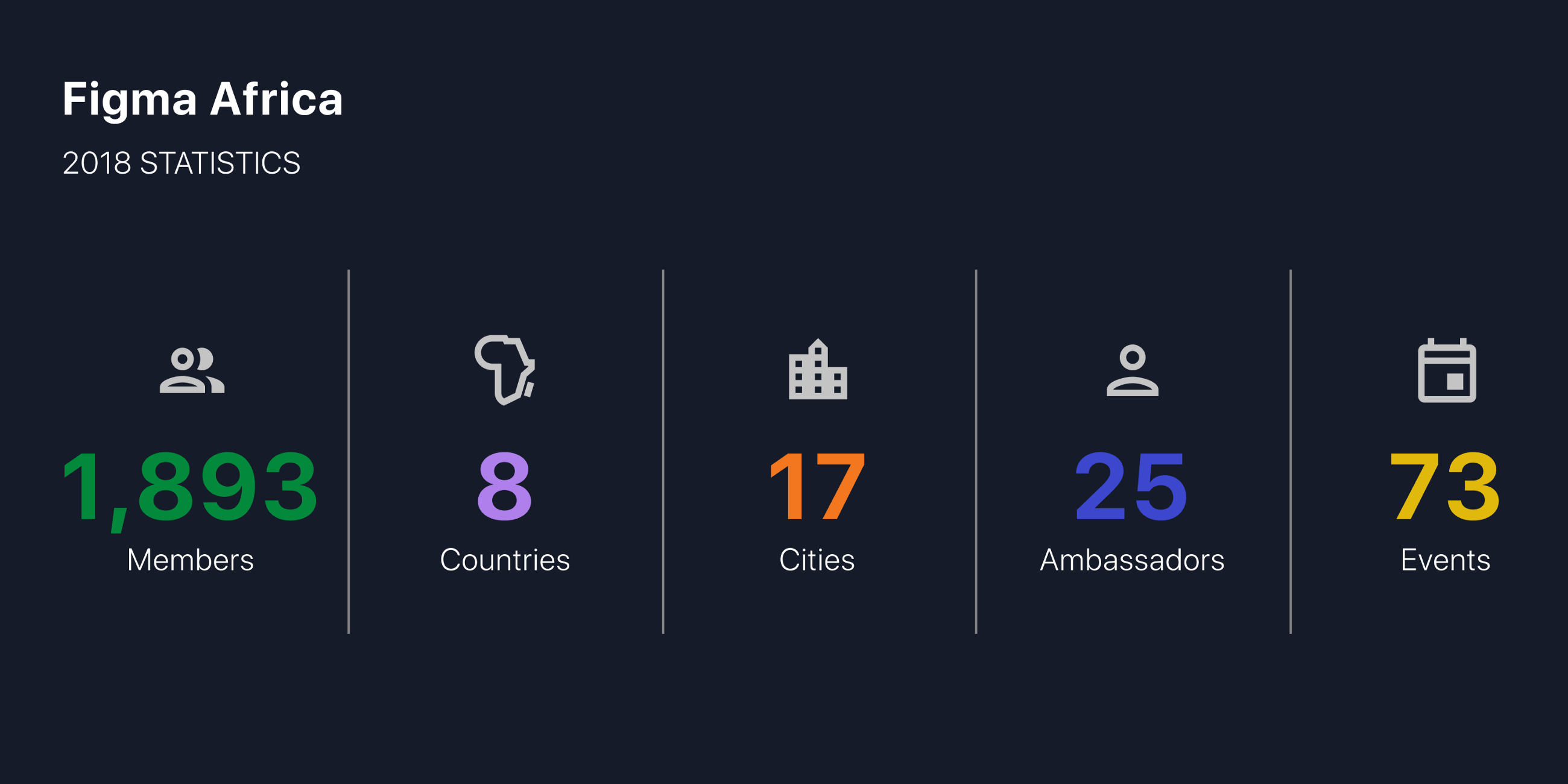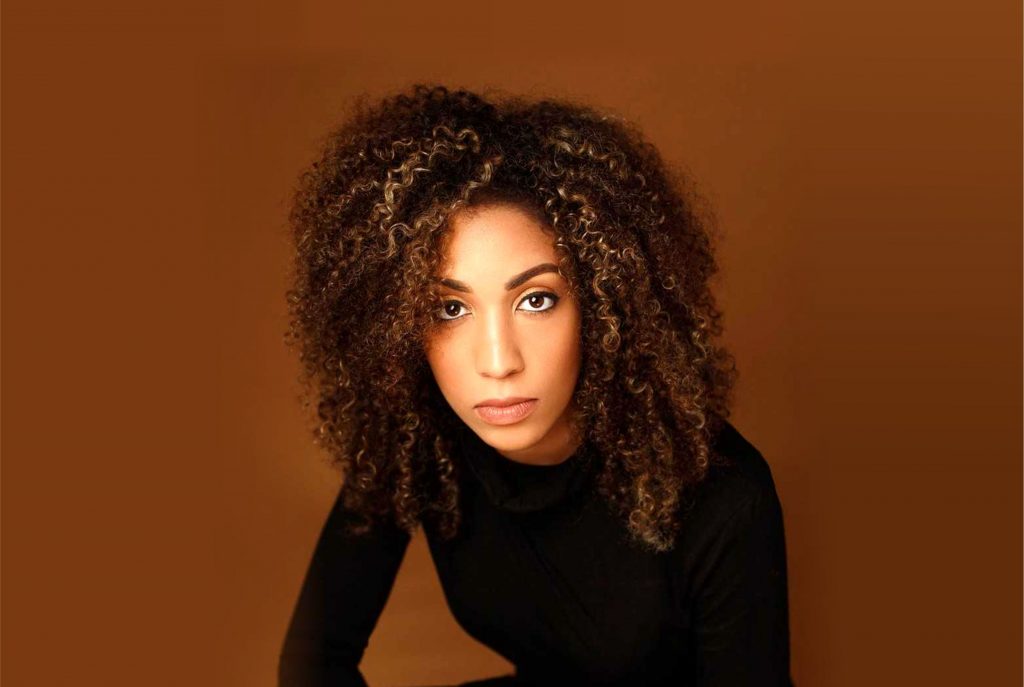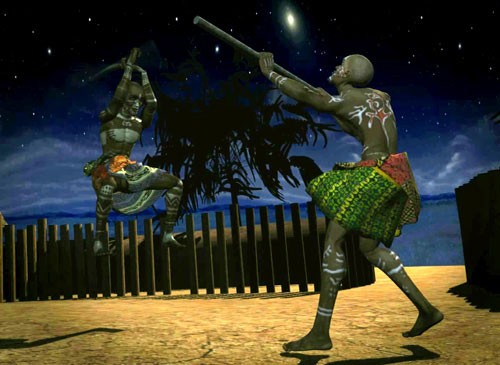

Redefining Design on the African Landscape with Figma Africa
In Africa, there aren’t a lot of web design schools one can learn from. If you ask 10 randomly selected Designers how they got started, you’ll most likely hear different funny stories. More often than not, the stories go thus:
Oh! I was just reading on typography and became fascinated with it, so I started creating designs with it and boom!”
It isn’t a different story for Web Designers. A lot of already existing Designers are self-taught. Most Frontend Developers will tell you that they started learning with HTML, then CSS before moving to Javascript.
It could be that they were already doing graphics or print designs and at some points, started experimenting with web design, or they were learning some of the principles of User Experience design and got curious, allowing their minds to wander.
These scenarios aren’t to trivialise the different ways we learn but show the lack of a structured learning process for design education in Africa. Although, some online learning platforms like Coursera, Udacity, Pluralsight, and YouTube, thankfully afford African Designers the opportunity to learn design and scale their careers while keeping up with existing design technologies for, Figma Africa has created a platform for in Africa to interact, mentor, learn, grow and profit together while engaging in design activities.
Figma Africa is so focused on Design Education across the continent and is very excited about how much progress has been made so far especially seeing how much recognition design education is getting nowadays.
Launched officially in May 2018, Lagos Nigeria, the Figma Africa Design Community has successfully grown to 8 countries, 17 cities and has 25 Design Ambassadors across Africa advocating for the community and facilitating Design Learning sessions.
This came much after the realisation that Design Learning sessions were much more impacting than regular meetups.
Progressively, the community grew to the extent where members were freely interacting among themselves in private and this was one of the soft goals Figma Africa set out to achieve. To facilitate flow and collaboration across boundaries, the community adopts Slack as its official communication platform. However, WhatsApp groups have also been created for some of the communities that might have difficulty fitting in on Slack; an example is the Congo DR community where French is the official language.
But Figma Africa understands the role of engagement, which is why in order not to feel secluded from the external ecosystem, the community started hosting A.M.A (Ask Me Anything) sessions with Design Leaders from different design fields. They include sessions with world-class designers from Figma, Netflix, Microsoft and even the Engineering Manager of Paystack.
These sessions offered our members the opportunity to interact with the AMA Guests, learn from their experience and also get answers to unasked questions sthat might have been bothering us.
Design Activities
Web design may be tricky for starters because of two common problems:
- Too many materials, resources, and mentors — making it confusing
- Lack of adequate materials, resources, and mentors for proper guidance
As mentioned earlier, there’s no clearly defined structure for learning web design, unlike coding. This makes it difficult to for those interested in learning to get started. As such, they usually end up doing a crash course on everything tagged “Design” they could find on the internet, in a frantic attempt to make progress.
Meanwhile, all they need is some definitive guidance to point them in the right direction on how to get started. Thanks to the Figma Africa community, interacting with others going through the same beginners’ struggle has also proven useful in providing guidance.
Learning Design with Figma
Figma Africa launched with a free self-paced design learning program (thanks to Zach Grosser for the well-curated curriculum), with weekly activities, learning materials and resources for those interested in learning design to get started with.
At the initial stage, adopting the curriculum wasn’t totally hitch-free. But thanks to the collaboration existing withing Figma Africa, the community was able to adapt and make it work especially for every member.
So far, the Figma Africa Designers community has successfully hosted 73 events (by hosting a minimum of 2 events every week and usually in different cities).
This was made possible with the help of Ambassadors who organise and facilitate these activities from South Africa, to the Benin Republic, to Kenya, Ghana, Morocco and coming down to Nigeria.
2019: What’s Next?
The goal for 2019 still very much remains the same — to continue making design education accessible to Designers across Africa. As usual, Figna Africa is partnering with a lot of Hubs and workspaces as it did last year, to achieve more.
Weekly Design Challenge
The Figma Africa weekly design challenge has been helpful for designers looking to build their portfolios. Last year it ran more than 20 design challenges on a weekly basis. This year, the community intends to make it even more rewarding with paired design challenges to give the experience of working in a team or office.
Newsletters
The Figma Africa newsletter started last year on a biweekly basis. This year, there are plans to do more and continue serving subscribers with awesome well-curated design content. You can subscribe here.
Partnerships
Partnerships are an important part of the Figma Africa community success. From providing event venues to footing some of the bills for these activities especially in locations where the community is just starting, there’s hope to partner with more hubs, workspaces, companies and other communities. In the meantime, you can join Figma on Slack or follow on Social Media. It’s best to keep up with Figma Africa meetup activities as well.
This article was written by Namnso Ukpanah, a Figma Africa Advocate and Lead Designer at HotelsNG









